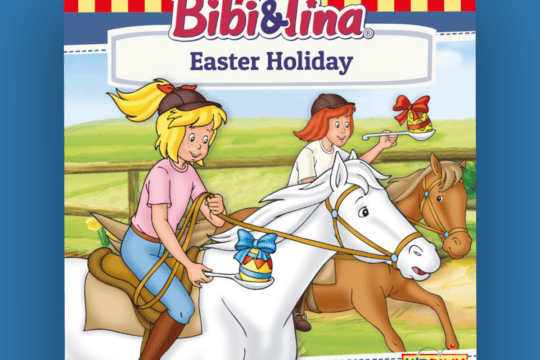
HomePony Know HowPony Care TipsFeedingFeeding for Pony Club camp
-
Pony Care Tips
Learn everything you need to know about caring for your fave pony. From feeding and grooming to mucking out – we have it all here!
-
Riding Tips
Improve your riding with our fab articles! Whether it's building your confidence, riding shapes, or jumping spreads that you need tips on, we have something for every rider.
Latest News
Feeding for Pony Club camp
Posted in Feeding
Jasmin Grogan, a nutrition advisor from Baileys, helps you make sure your pony has the right diet to cope with the demands of Pony Club camp this summer

Top tip – If you’ve got any questions about what your pony should eat, feed companies have trained nutritionists that you can call for advice.
Q Do I need to change what my pony eats, because he’s going to be working harder during camp?
Jasmin says If your pony has a mix, cube or balancer alongside hay or grazing, check you’re giving him the recommended amount to ensure he’s getting all the vitamins, minerals and nutrients he needs. You can find this info on the bag, or ask a nutritionist to help you work it out. Vits and mins are super-important because they help release energy from what your pony eats, and if he’s not getting enough of them, he may lack energy and stamina.
A lot of ponies don’t need a mix or cube feed if they’re getting enough calories from grass and hay, but a feed balancer is a really good idea to provide your pony with those all-important vits and mins. However, you might need to change the type of balancer he has in the run-up to camp to one that’s designed for ponies who are doing more work. Also, if you normally feed a low-energy mix or cube, you may need to add a balancer to bring the levels of vitamins, minerals and quality protein up, without adding more calories.
If the pony you’ll be riding at camp is likely to lose condition, you may need to change him to a higher energy feed formulated for harder work.
Always make sure you speak to a nutritionist, vet or your yard manager before changing your pony’s diet, though.
Q I’m staying away at camp with my pony – what do I need to remember?
Jasmin says Try to keep your pony’s routine as close to normal as possible. If he’s going to be stabled at camp, but he’s used to being turned out, ask if you can hand-graze him for a while each day, so he can enjoy some grass and chill-out time. When he’s in his stable, make sure he’s always got some forage to munch on, and keep to his normal meal times as much as possible. You may need to add a small lunch-time feed, especially if you’ve had to increase how much you feed to match the extra work he’s doing.

Q I’ll be giving my pony hay in between our riding sessions at camp, but he’s a good doer and I need to watch his weight. How can I make sure he doesn’t eat too much?
Ideally, your pony should be able munch on a haynet whenever he’s not being ridden, to mimic his normal feeding or grazing patterns and keep his gut functioning. Ensuring there’s fibre in his tummy before you ride him is also good for reducing the risk of gastric ulcers from stomach acid splashing around during exercise. If he’s a particularly good-doer, you might have to use a small-holed haynet to slow down his eating and make a small amount of hay last longer.
Q How can I make sure he drinks enough?
If you’re staying at camp, make sure there’s always fresh water in your pony’s stable and keep an eye on his bucket so you can see how much he’s drinking. Some ponies don’t like the taste of different water and will refuse to drink it, so you might need to take as much from home as you can. A handy tip is to get your pony used to drinking flavoured water at home, so try adding a few drops of apple juice or peppermint essence to his bucket. You can then do this to the water at camp, to mask the different taste.
Always offer your pony water after every riding session, and you may need to add an electrolyte supplement to help replace important body salts that can be lost in sweat. If your pony won’t drink water with electrolytes in it, you can put them in his feed, but make it wet and sloppy. Or mix them with very wet chaff or soaked beet pulp.
For more feeding tips, visit baileyshorsefeeds.co.uk


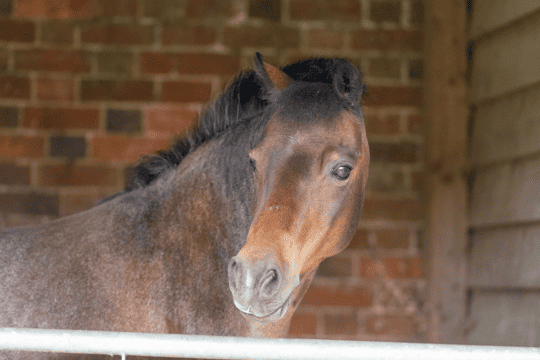
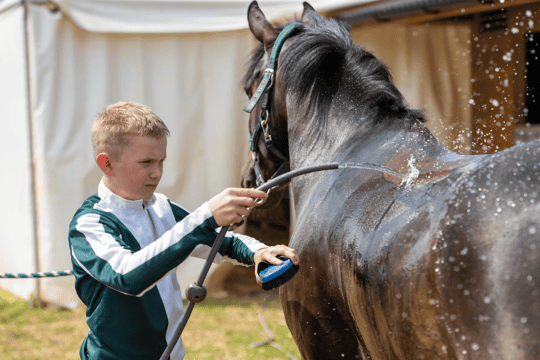






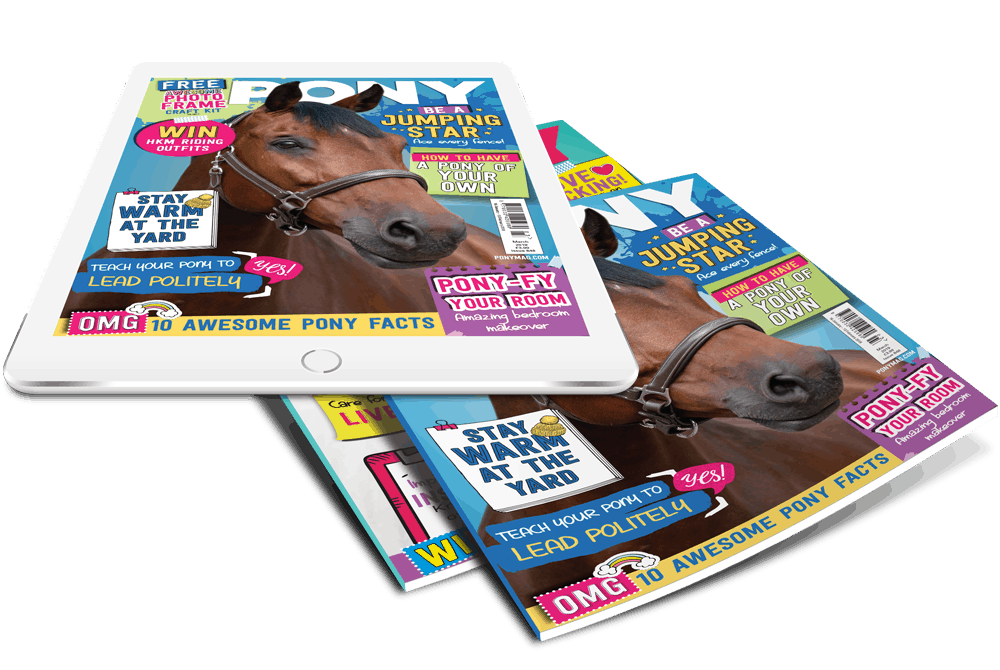



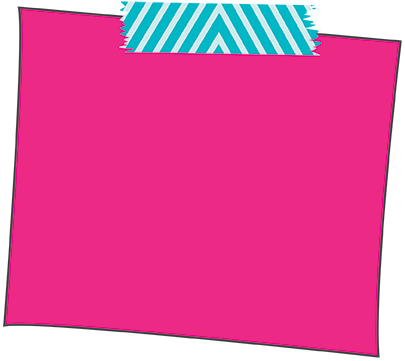







Leave a Reply
You must be logged in to post a comment.